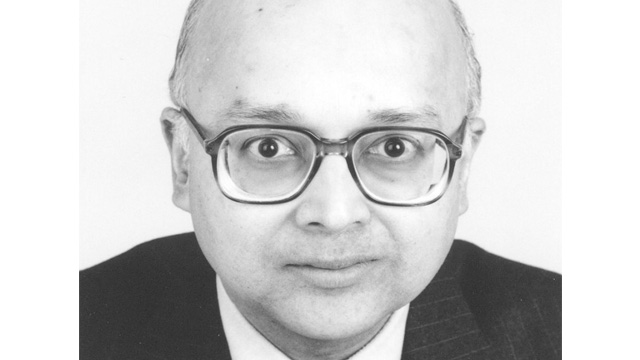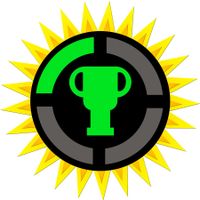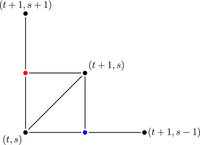Explore web search results related to this domain and discover relevant information.
Game theory studies interactive decision-making, where the outcome for each participant or "player" depends on the actions of all. If you are a player in such a game, when choosing your course of action or "strategy" you must take into account the choices of others.
Game theory studies interactive decision-making, where the outcome for each participant or "player" depends on the actions of all. If you are a player in such a game, when choosing your course of action or "strategy" you must take into account the choices of others.A Theory is Born This science is unusual in the breadth of its potential applications. Unlike physics or chemistry, which have a clearly defined and narrow scope, the precepts of game theory are useful in a whole range of activities, from everyday social interactions and sports to business and economics, politics, law, diplomacy and war.Game theory got its start with the work of John von Neumann in the 1920s, which culminated in his book with Oskar Morgenstern. They studied "zero-sum" games where the interests of two players were strictly opposed. John Nash treated the more general and realistic case of a mixture of common interests and rivalry and any number of players.Other theorists, most notably Reinhard Selten and John Harsanyi who shared the 1994 Nobel Memorial Prize with Nash, studied even more complex games with sequences of moves, and games where one player has more information than others.


A simple model developed by a RIKEN researcher and a collaborator predicts the emergence of self-organized institutions that manage limited resources such as fisheries or irrigation water. This model provides a window into the mechanism behind the emergence of such institutions.
Now, by integrating game theory, dynamical systems and multilevel evolution theory, Itao and Kunihiko Kaneko of the University of Copenhagen in Denmark have developed a simple mathematical model that shows how self-organized institutions can arise.A simple game-theoretic model demonstrates that self-organized institutions can naturally emerge to manage limited resources.Citation: Using game theory to explain how institutions arise naturally to manage limited resources (2025, August 22) retrieved 24 August 2025 from https://phys.org/news/2025-08-game-theory-naturally-limited-resources.htmlMore information: Kenji Itao et al, Self-organized institutions in evolutionary dynamical-systems games, Proceedings of the National Academy of Sciences (2025).

The Game Theorists, also known as Game Theory (formerly MatthewPatrick13), is a YouTube channel with a global team of employees known as Team Theorist. Their main focus is decoding the lore, analyzing, and formulating theories on a variety of popular video games such as Five Nights at Freddy's, ...
The Game Theorists, also known as Game Theory (formerly MatthewPatrick13), is a YouTube channel with a global team of employees known as Team Theorist. Their main focus is decoding the lore, analyzing, and formulating theories on a variety of popular video games such as Five Nights at Freddy's, Bendy and the Ink Machine, Minecraft, Mario, and Super Smash Bros.Welcome to Style Theory! The Game Theorists, also known as Game Theory (formerly MatthewPatrick13), is a YouTube channel with a global team of employees known as Team Theorist.Their main focus is decoding the lore, analyzing, and formulating theories on a variety of popular video games such as Five Nights at Freddy's, Bendy and the Ink Machine, Minecraft, Mario, and Super Smash Bros. The Game Theorists' channel also operates the channels The Food Theorists, The Film Theorists, The Style Theorists, and GTLive.Matthew stopped uploading these clips sometime in mid-2009 and no new content was added to his channel for an extensive period of time. Uploads didn't restart on the channel until April 14th, 2011, when Patrick officially announced the series he was creating, called Game Theory.[2]

The Game Theorists is the first and the main YouTube channel of the Theorist group of channels, created by Matthew Patrick and his wife Stephanie Patrick on August 22, 2009. It is most known for the series Game Theory, but has hosted several other series and content creators over the years.
Team Theorist as seen in "My Reaction to the Fine Bros React World Controversy". Clockwise from middle-left: Stephanie, Skip the Cat, Trailer Drake, AbsolutePixel, Furst, Earl the Editor, Ronnie Edwards, Yosi Berman, FootofaFerret, Gaijin Goombah, and MatPat. The Game Theorists is the first and the main YouTube channel of the Theorist group of channels, created by Matthew Patrick and his wife Stephanie Patrick on August 22, 2009.A few years after the launch of the channel, Patrick decided to leave the filming and acting industry. However, he was unable to find anyone willing to hire him, so he went to the internet for help. On April 14, 2011, Patrick uploaded a promotional trailer for his new show, Game Theory, inspired by the Escapist's showWith this, Patrick also introduced two new shows on his channel: Game Exchange, hosted by Gaijin Goombah and focused more on history and culture rather than science and mathematics; and Digressing & Sidequesting, hosted by Ronnie Edwards. After these changes and additions to the channel, The Game Theorists slowly rose in popularity, with some of his most well-known episodes being uploaded around this time, such as his "Mario is Mental" two-parter and "Link Is Dead".In mid-2014, "Smash History" was started, going into depth about the origins of the moveset, etc. of each of the characters and stages of Super Smash Bros., starting with Mario. Also in mid-2014, The Game Theorists collaborated with FootofaFerret to make "A Brief History of The Game Theorists".
Game theory examines how individuals and entities, referred to as players, strategize and make decisions in competitive environments. As a theoretical framework, it models scenarios involving conflicts of interest and provides insights into possible outcomes and strategies.
Game theory examines how individuals and entities, referred to as players, strategize and make decisions in competitive environments. As a theoretical framework, it models scenarios involving conflicts of interest and provides insights into possible outcomes and strategies.Here are a few terms commonly used in the study of game theory: Game: Any set of circumstances that has a result dependent on the actions of two or more decision-makers (players).Game theory is present in almost every industry or field of research. Its expansive theory can pertain to many situations, making it a versatile and important theory. Here are several fields of study directly impacted by game theory. Game theory revolutionized economics by solving issues in earlier mathematical models.Economists often use game theory to explain oligopoly firm behavior. It helps to predict likely outcomes when firms engage in certain behaviors, such as price-fixing and collusion. In business, game theory is beneficial for modeling competing behaviors between economic agents.
:max_bytes(150000):strip_icc()/gametheory-072c88d1036741f180469734832a6d14.png)

The gateway game theory goes something like this: "When introducing non-gamers to the hobby, pick a shorter, simpler game. As they get more experience with playing board games, you can introduce them to more complicated games, and eventually they will become a gamer just like you. Starting them with

Researchers are using game-inspired algorithms to help robots make safer choices when working with humans.
The team drew inspiration from game theory, a mathematical framework originally from economics. In robotics, game theory treats each robot as a player in a game.Winning means completing a task, but with humans involved, the game gets unpredictable.
A rational agent in an interactive situation should therefore not ask: “What can I do, given what is likely to happen?” but rather: “What can I do in response to what they do, given that they have a belief about what I will do?” Based on this perspective, game theory recommends rational ...
A rational agent in an interactive situation should therefore not ask: “What can I do, given what is likely to happen?” but rather: “What can I do in response to what they do, given that they have a belief about what I will do?” Based on this perspective, game theory recommends rational choices for these situations, and predicts agents’ behavior in them.This article presents the basic tenets of game theory in a non-formal way. It then discusses two broad philosophical issues arising from the theory. First, whether the rationality concept employed by the theory is justifiable – whether it is intuitively rational to choose as the theory prescribes.Second, whether the theory can in principle be a good predictive theory of human behavior – whether it has empirical content, whether it is testable and whether there are good reasons to believe that it is true or false. ... Game theory belongs to a family of theories often subsumed under the umbrella term Rational Choice Theory.Depending on how these conditions are interpreted, Rational Choice theory may have a positive or a normative function: it may contribute to the prediction and explanation of agent behavior, or it may contribute to advising agents what they should do. Many of the purported functions of Rational Choice theory are controversial; as a part of it, game theory is affected by these controversies, in particular its usefulness for the social sciences.

Less than an hour ago, I placed an order on CTG’s website. They currently have a neat offer (a free expansion or premium health tokens if you spend at least 200€), and I always wanted to give Too Many Bones a try. I was on my phone and, before

A football match is modeled as a finite-horizon dynamic contest game with multiple battles. Each period consists of two stages. There is a battle for ball possession in the first stage. If one team gains possession and creates an attacking chance, there is another battle in the second stage, ...
Vojnović, M. 2016. Contest Theory: Incentive Mechanisms and Ranking Methods. Cambridge: Cambridge University Press. ... Yildirim, H. 2005. Contests with multiple rounds. Games and Economic Behavior 51 (1): 213–227.Jost, P.-J. 2021. The ball is round, the game lasts 90 minutes, everything else is pure theory.Keskin, K. A game theory approach to football predictions. Public Choice (2025).A football match is modeled as a finite-horizon dynamic contest game with multiple battles. Each period consists of two stages. There is a battle for ball possession in the first stage. If one team gains possession and creates an attacking chance, there is another battle in the second stage, where the attacking team attempts to score a goal while the other team tries to defend its post.
1.6K votes, 468 comments. Thanks for all the great responses. I read the wiki article and just wanted to hear it simplified for my own understanding…
Game theory attempts to define these situations in mathematical terms, and determine what would happen if every player acts rationally. Maybe an equilibrium can be reached (Which is why we all drive on the same side of the road within a country).I think its definitely true that entry level examples of game theory are over-simplistic, but yes, you can think of them as models of pendulums where the string is frictionless and theres no airpressure and the ball is literally perfectly round etc. What's interesting about game theory is it really does do surprisingly well at predicting social behaviour.To answer your example directly people have found that experienced bargainers behave much like game theory suggests. http://en.wikipedia.org/wiki/Kenneth_Binmore (second paragraph of research - i don't know how to do the clever link). I reckon that a lot of strategic agents, whether they're firms, individuals, or football players, do have a strong enough motivation that game theory can model their actions really well i.e.I can understand that, just like in physics theory of gravity deals only with gravity and to model more real live situations we need to look at all forces involved in it. I imagine game theory would work in similar way allowing to build (compose in some mathematical way) complex models from simple-well understood basics...

Hello Internet! Welcome to GAME THEORY! If you’re like us, then you’ve probably wondered about the secrets hidden in your favorite games. We explore the vast...
Hello Internet! Welcome to GAME THEORY! If you’re like us, then you’ve probably wondered about the secrets hidden in your favorite games. We explore the vast lore of Minecraft, piece together the craziest FNAF conspiracies, and cover the whole world of indie gaming on this channel.


This series of Playable Futures articles considers how the design, technology, people, and theory of video games are in…
If life were a simulation, what would that mean for games? And what might games have to teach our perceived reality? ... Published on Aug. 18, 2025 ... This series of Playable Futures articles considers how the design, technology, people, and theory of video games are informing and influencing the wider world.Are paranormal entities like ghosts simply bugs in the code? Is sleep a way to manage load on the busiest servers? And if this is all a simulation, who's making the video games – and why? These are the kinds of questions that emerge when you apply the concepts of 'simulation theory' to an analysis of what games are.And it's a programming approach that the hypothetical custodians of the simulation theory seem a little prone to – potentially explaining many of the strange tails that The Cryptid Factor has considered. At this point, it's hard not to wonder who the designer of the simulation might be. And if the simulation is designed, it draws tremendous parallels with video game experiences – and their creation.He continues: "I think it's really helpful to think about games as a way to explore simulation theory, and what the simulation might be. When life ends will we appear in a lobby and have all our friends and family comment on what we've been up to? What will that be like if we can't deny what they've seen?

Game theory is the cheat code to life Game theory can explain humanity’s biggest problem Isaac Newton’s third law tells us that for every action, there is an equal and opposite reaction. In life …
If we look at real-life situations like two countries sitting across a negotiation table, two people on a first date deciding whether to open up, or coworkers silently choosing who will take on a tough project; it’s all strategy and this is where game theory comes in.Game theory is the mathematical study of strategic decision-making, and it might just be the ultimate cheat code to life and it’s challenges.By predicting how others react to our actions (and vice versa), game theory helps us make smarter choices in relationships, business, and everyday dilemmas.
Posted by u/theintellectualsloth - 0 votes and 20 comments
It's a mathematical theory (i.e. an area of maths) that describes situations in which you have a set of players who choose from a set of strategies and receive payoffs based on their strategies and those of the other players. It's pretty broad: you can study games in which two players each choose between two strategies or games in which infinite sets of players choose from infinite sets of strategies.It also has applications in evolutionary biology, sociology, psychology, computer science, political science, military theory, philosophy, etc., not to mention in actual games. Lots of people from different fields are interested in the idea of making strategic choices, or at least ideas that are closely analogous.Say that you live downstream from a pharmaceutical factory which typically dumps waste every year and that increases your cancer risk by 2% each year. Game theory lets you quantify that cancer risk by saying “at what point does a regulation on the pharmaceutical factory equal the acceptable amount of cancer risk”.Game theory tries to use math to define strategy and how people react to other people’s strategies.

Learning game theory is like getting a cheat code for understanding how people and organizations make decisions—especially in competitive, strategic, or uncertain situations.
✨ Learning game theory is like getting a cheat code for understanding how people and organizations make decisions—especially in competitive, strategic, or uncertain situations.Once they have the bounty slip, they don’t need him, and certainly don’t need to split the money. Why wouldn’t he see that coming? Could just be bad writing, or the character just does not understand game theory.Game theory is the study of strategic interaction between decision-makers ("players") where each one's outcome depends not just on their own choices, but also on others'. It's used in economics, politics, business, biology, and more—anywhere choices collide.I’ve noticed my husband & co-founder Ryan is much more intuitive with game theory. He quickly thinks several steps ahead from the point of view of our counterparts, which makes him an excellent strategist.

Game theory is the study of mathematical models of strategic interactions. It has applications in many fields of social science, and is used extensively in economics, logic, systems science and computer science. Initially, game theory addressed two-person zero-sum games, in which a participant's ...
Game theory is the study of mathematical models of strategic interactions. It has applications in many fields of social science, and is used extensively in economics, logic, systems science and computer science. Initially, game theory addressed two-person zero-sum games, in which a participant's gains or losses are exactly balanced by the losses and gains of the other participant.Modern game theory began with the idea of mixed-strategy equilibria in two-person zero-sum games and its proof by John von Neumann. Von Neumann's original proof used the Brouwer fixed-point theorem on continuous mappings into compact convex sets, which became a standard method in game theory and mathematical economics.The second edition provided an axiomatic theory of expected utility, which allowed mathematical statisticians and economists to treat decision-making under uncertainty. Game theory was developed extensively in the 1950s, and was explicitly applied to evolution in the 1970s, although similar developments go back at least as far as the 1930s.John Maynard Smith was awarded the Crafoord Prize for his application of evolutionary game theory in 1999, and fifteen game theorists have won the Nobel Prize in economics as of 2020, including most recently Paul Milgrom and Robert B.In 1838, Antoine Augustin Cournot provided a model of competition in oligopolies. Though he did not refer to it as such, he presented a solution that is the Nash equilibrium of the game in his Recherches sur les principes mathématiques de la théorie des richesses (Researches into the Mathematical Principles of the Theory of Wealth).

Makers of award-winning and premium tabletop board game experiences.
We'll keep you sparingly updated with our latest game offerings and promotions. ... Copyright © 2025 Chip Theory Games.Available now for preorder, live on Gamefound, open for late pledges, or just unveiled as a new upcoming release.

Game theory, branch of applied mathematics that provides tools for analyzing situations in which parties, called players, make decisions that are interdependent. This interdependence causes each player to consider the other player’s possible decisions, or strategies, in formulating strategy.
In fact, game theory was originally developed by the Hungarian-born American mathematician John von Neumann and his Princeton University colleague Oskar Morgenstern, a German-born American economist, to solve problems in economics.In their book The Theory of Games and Economic Behavior (1944), von Neumann and Morgenstern asserted that the mathematics developed for the physical sciences, which describes the workings of a disinterested nature, was a poor model for economics. They observed that economics is much like a game, wherein players anticipate each other’s moves, and therefore requires a new kind of mathematics, which they called game theory.Game theory was further developed in the 1950s by American mathematician John Nash, who established the mathematical principles of game theory, a branch of mathematics that examines the rivalries between competitors with mixed interests.This article describes some simple games, discusses different theories, and outlines principles underlying game theory. Additional concepts and methods that can be used to analyze and solve decision problems are treated in the article optimization. Games can be classified according to certain significant features, the most obvious of which is the number of players.


It's a history wrapped up with great math and poor psychology.
This has been a recurring perspective of this historical event for decades. In fact, some people see the crisis as a quintessential example of game theory – the mathematical study of strategic interactions – in action. Since the Cold War, game theory has often been held in almost reverential acclaim for its supposed power to predict people’s actions and decisions (especially within the world of economics).Sure, few people can say their lives have necessarily been impacted by the role this theory played in the Cold War’s strategic logic or foreign policy decision making, but what about its quieter role in influencing political ideologies during the 1980s and 1990s (neoliberalism is tightly bound up with game theory) or its subtle effect on state education models or healthcare programs, especially in the UK?How about in the world of science? Ever heard of The Selfish Gene? This influential model was proposed by Richard Dawkins in 1976 and attempted to clarify natural selection by focusing on gene-level selection and, as you may have guessed by now, it was heavily informed by game theory.Although game theory shouldn’t be understood as a coherent single idea, but more like a set of tools applied differently at different times and by different people, it has been a barely visible force behind many major aspects of modern history.

:max_bytes(150000):strip_icc()/gametheory-072c88d1036741f180469734832a6d14.png)



